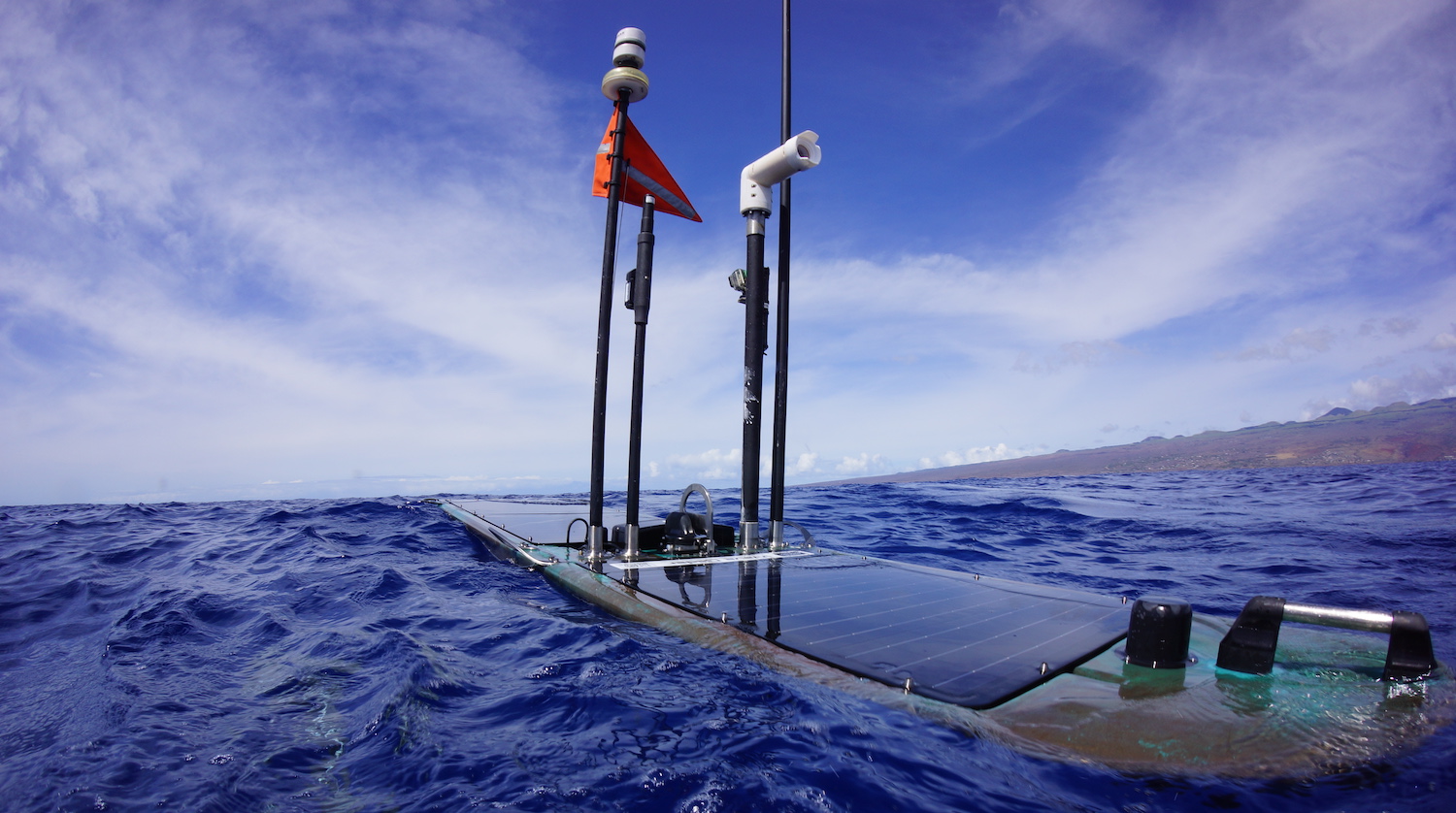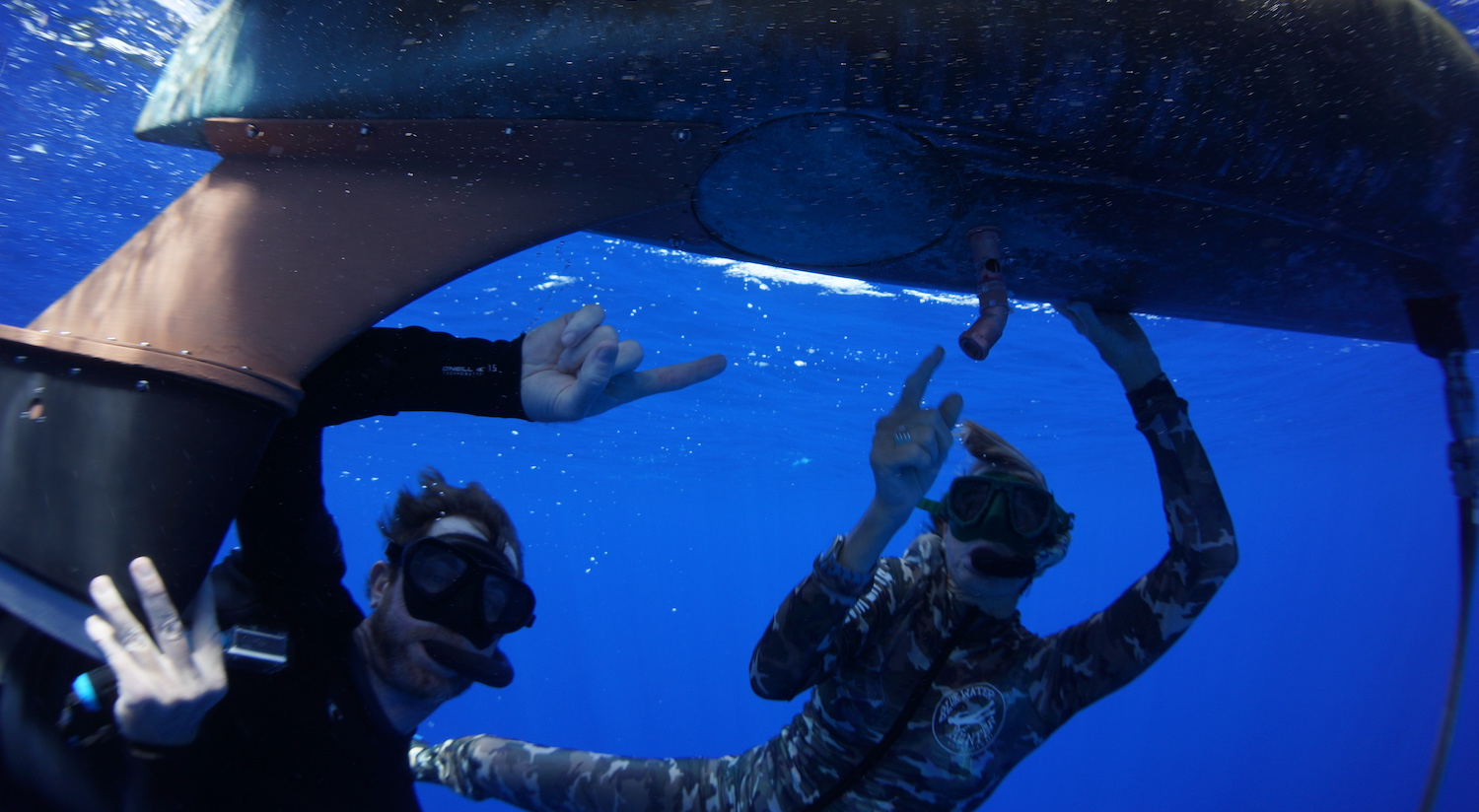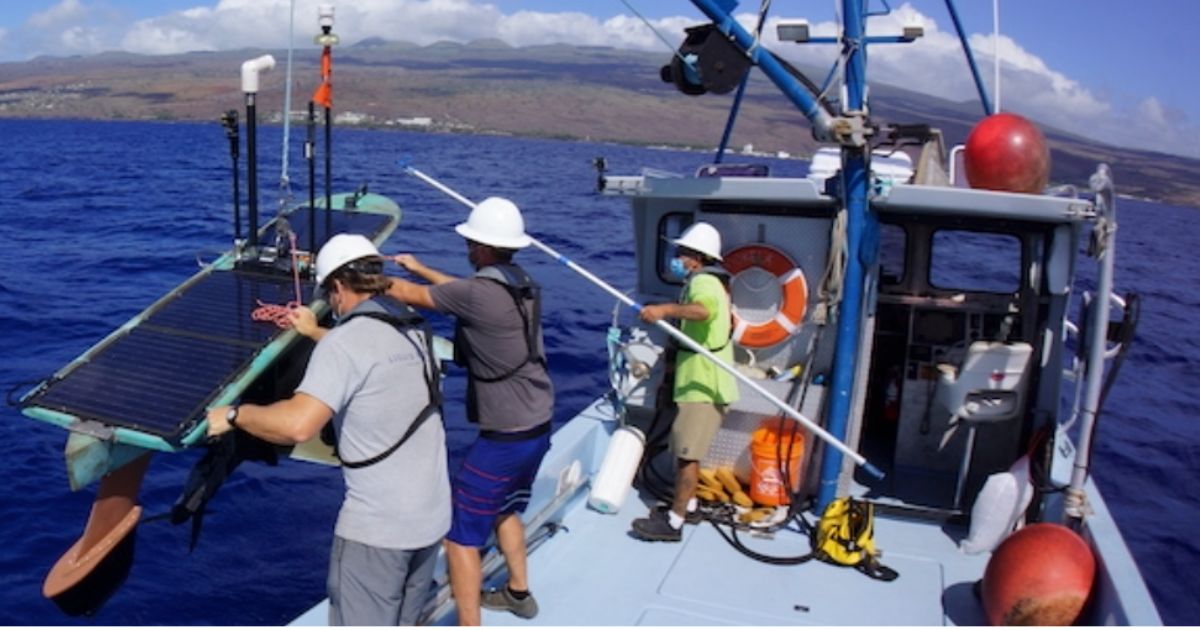The Wave Glider Ocean Plastics Demonstrator project has been selected for the 2022 Environmental Leadership Award by The Boeing Company.
In the category Protection, Compliance & Stewardship, Liquid Robotics’ collaboration with Boeing, the Jupiter Research Foundation, and NOAA’s Pacific Islands Fisheries Science Center was recognized for its efforts to help address a global environmental problem: microplastics in the ocean.
The International Union for Conservation of Nature (IUCN) estimates that at least 14 million tons of plastic end up in the ocean worldwide each year. Over time and with exposure to the elements, plastic breaks down into microplastics (smaller than 5 mm). Due to the small size, marine life accidentally ingests these particles with significant impacts to the entire food chain.
To better understand the density and distribution of microplastics, how it accumulates, and how ocean life interacts with the microplastics, researchers are interested in the ability to see these miniature particles in real-time. During the Demonstrator mission off Miloliʻi, Hawaiʻi Island, Wave Glider “Mando” was equipped with a novel autonomous microscope developed by the Jupiter Research Foundation. The microscope ingests sea water samples, graphically captures and analyzes the samples, and releases them back into the ocean. The sampling can be set to predefined intervals, or manually prompted in a specific area of interest.
 Jupiter Research Foundation’s Beth Goodwin and Danny Merritt from Liquid Robotics inspect the Wave Glider and the water intake nozzle for the autonomous microscope.
Jupiter Research Foundation’s Beth Goodwin and Danny Merritt from Liquid Robotics inspect the Wave Glider and the water intake nozzle for the autonomous microscope.
As an uncrewed surface vehicle, the Wave Glider serves as an excellent mobile, long-duration research lab to collect and examine samples “on the go” while navigating along a desired course. Physical oceanographic and atmospheric data are also measured to capture a more complete picture of the ocean environment and the conditions. All data collected during this mission supports ongoing research of NOAA’s West Hawaiʻi Integrated Ecosystem Assessment and surface slicks.
“Real-time water sampling offers many new opportunities for in-situ data collection, and to ground-truth satellite imagery. Autonomous vehicles make it possible to collect a wealth of data over long periods of time and vast distances”, said Danny Merritt, staff engineer and project lead at Liquid Robotics.
Powered exclusively by wave and solar energy, the Wave Glider is a true environmental champion. For more than 15 years, Wave Gliders have supported a wide variety of oceanic and atmospheric research to advance ocean science: from marine mammal tracking to carbon cycle research, from seismic ocean floor monitoring to algal bloom detections.
 The name “Mando” was chosen because of the Wave Glider’s coloration, reminding of the main character of the Disney+ TV series “The Mandalorian”.
The name “Mando” was chosen because of the Wave Glider’s coloration, reminding of the main character of the Disney+ TV series “The Mandalorian”.
Named after the Disney+ TV series The Mandalorian, “Mando” earned its name from the mix-match of part colors. In the next project phase, Wave Glider “Mando” will be equipped with more Beskar (special alloy for Mandalorian armor).
Each year, Boeing recognizes projects that have demonstrated environmental and conservation leadership through the implementation of innovative and creative ideas. Learn more about Boeing’s sustainability commitments and Boeing’s ecoDemonstrastor Program.





